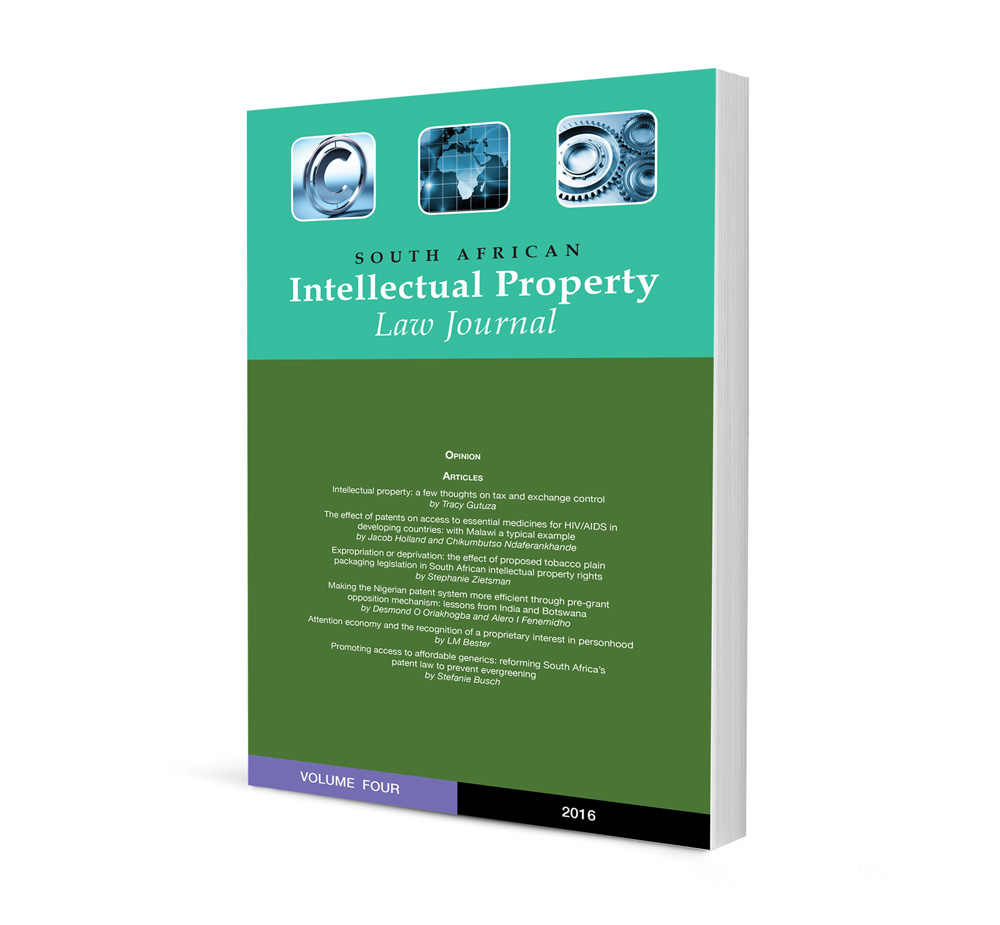Corporate governance of collecting societies in Nigeria: Powers of the copyright sector regulator

Corporate governance of collecting societies in Nigeria: Powers of the copyright sector regulator
Authors Chijioke I Okorie
ISSN: 2521-2591
Affiliations: Lead Consultant, Penguide Advisory
Source: South African Intellectual Property Law Journal, 2018, p. 24 – 46
Abstract
None
